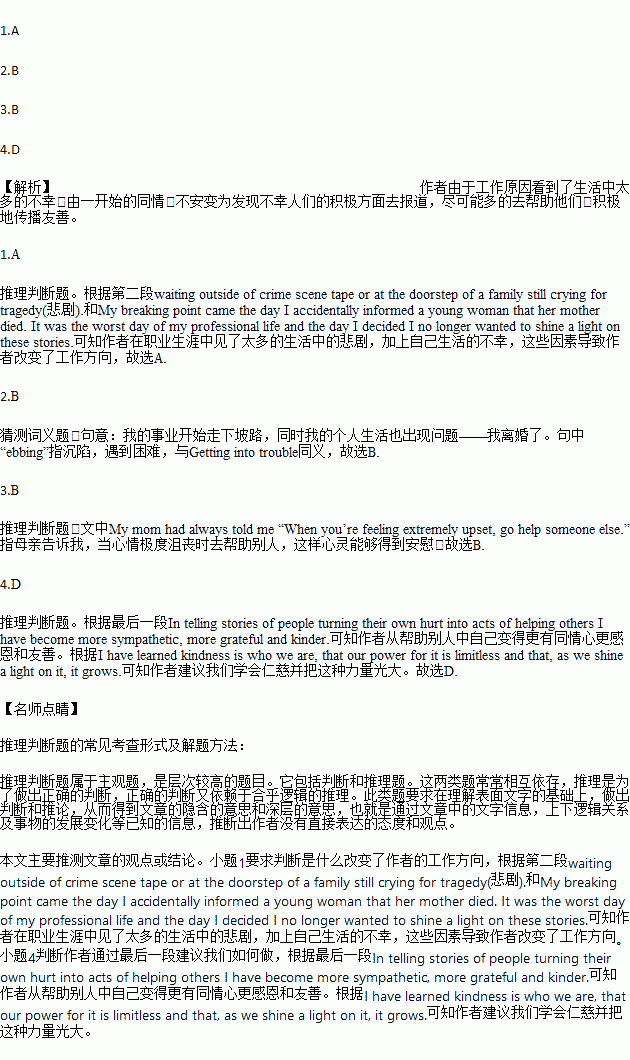题目内容
When I graduated from college I dreamed of being a television news reporter. Having no experience, I had to work in a small town until I finally got my big break in the form of a job in Boston. I made it.
Soon, reality set in. I was too often sent to run after accused criminals out of courts, waiting outside of crime scene tape or at the doorstep of a family still crying for tragedy (悲剧). My breaking point came the day I accidentally informed a young woman that her mother died. It was the worst day of my professional life and the day I decided I no longer wanted to shine a light on these stories. My career was ebbing, and at the same time my personal life was too-I divorced.
My mom had always told me “When you’re feeling extremely upset, go help someone else.” So I started seeking out stories of people who had been in the news under tragic circumstances but were doing something inspiring with their lives: a young girl who was paralyzed (瘫痪的) by an accident but was uplifting her classmates with her positive spirit, a blind and autistic (自闭的) musician who learned to play 27 instruments, a disabled soldier who opened his own art studio. I started to tell and promote stories like them.
Over the last 10 years I have discovered my kindness gift: my ability to see the beautiful side of a person and reflect it back to them and the world. In telling stories of people turning their own hurt into acts of helping others I have become more sympathetic, more grateful and kinder. I have learned kindness is who we are, that our power for it is limitless and that, as we shine a light on it, it grows.
1.What changed the author’s working direction in his job in Boston?
A. The tragedy in the society B. The low payment of the job
C. The hurt from his divorce D. The fear of cruel criminals
2.What is the meaning of the underlined word “ebbing” in paragraph 2?
A. taking off
B. getting into trouble
C. unchangeable at all
D. dull but important
3.What the author’s mother said means .
A. helping others is a way to escape from reality
B. helping others can comfort your soul
C. the best way of helping others is telling stories
D. it is difficult to make contributions to helping others
4.According to the last paragraph, what does the author advise us to do?
A. To tell inspiring stories.
B. To fight against criminals.
C. To ignore our own hurt.
D. To do as much kindness as possible.
 新课标快乐提优暑假作业陕西旅游出版社系列答案
新课标快乐提优暑假作业陕西旅游出版社系列答案

 ng B. doing C. offering D. taking
ng B. doing C. offering D. taking